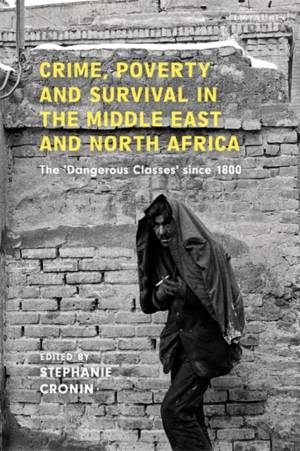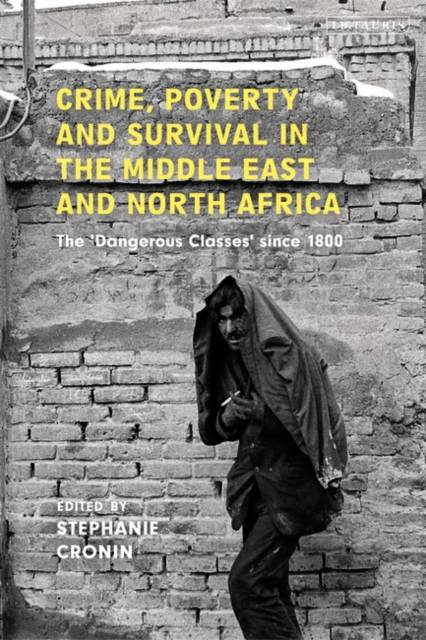
Je cadeautjes zeker op tijd in huis hebben voor de feestdagen? Kom langs in onze winkels en vind het perfecte geschenk!
- Afhalen na 1 uur in een winkel met voorraad
- Gratis thuislevering in België vanaf € 30
- Ruim aanbod met 7 miljoen producten
Je cadeautjes zeker op tijd in huis hebben voor de feestdagen? Kom langs in onze winkels en vind het perfecte geschenk!
- Afhalen na 1 uur in een winkel met voorraad
- Gratis thuislevering in België vanaf € 30
- Ruim aanbod met 7 miljoen producten
Zoeken
Crime, Poverty and Survival in the Middle East and North Africa The 'Dangerous Classes' Since 1800
The 'Dangerous Classes' Since 1800
€ 254,45
+ 508 punten
Omschrijving
The concept of the 'dangerous classes' was born in a rapidly urbanizing and industrializing nineteenth century Europe. It described all those who had fallen out of the working classes into the lower depths of the new societies, surviving by their wits or various amoral, disreputable or criminal strategies. This included beggars and vagrants, swindlers, pickpockets and burglars, prostitutes and pimps, ex-soldiers, ex-prisoners, tricksters, drug-dealers, the unemployed or unemployable, indeed every type of the criminal and marginal.
This book examines the 'dangerous classes' in the Middle East and North Africa, their lives and the strategies they used to avoid, evade, cheat, placate or, occasionally, resist, the authorities. Chapters cover the narratives of their lives; their relationship with 'respectable' society; their political inclinations and their role in shaping systems and institutions of
discipline and control and their representation in literature and in popular culture. The book demonstrates the liminality of the 'dangerous classes' and their capacity for re-invention. It also indicates the sharpening relevance of the concept to a Middle East and North Africa now in the grip of an almost permanent sense of crisis, its younger generations crippled by a pervasive sense of hopelessness, prone to petty crime and vulnerable to induction as foot soldiers into drug and people smuggling, petty gangsterism and jihadism.
This book examines the 'dangerous classes' in the Middle East and North Africa, their lives and the strategies they used to avoid, evade, cheat, placate or, occasionally, resist, the authorities. Chapters cover the narratives of their lives; their relationship with 'respectable' society; their political inclinations and their role in shaping systems and institutions of
discipline and control and their representation in literature and in popular culture. The book demonstrates the liminality of the 'dangerous classes' and their capacity for re-invention. It also indicates the sharpening relevance of the concept to a Middle East and North Africa now in the grip of an almost permanent sense of crisis, its younger generations crippled by a pervasive sense of hopelessness, prone to petty crime and vulnerable to induction as foot soldiers into drug and people smuggling, petty gangsterism and jihadism.
Specificaties
Betrokkenen
- Uitgeverij:
Inhoud
- Aantal bladzijden:
- 328
- Taal:
- Engels
- Reeks:
Eigenschappen
- Productcode (EAN):
- 9781788313711
- Verschijningsdatum:
- 28/11/2019
- Uitvoering:
- Hardcover
- Formaat:
- Genaaid
- Afmetingen:
- 155 mm x 236 mm
- Gewicht:
- 566 g

Alleen bij Standaard Boekhandel
+ 508 punten op je klantenkaart van Standaard Boekhandel
Beoordelingen
We publiceren alleen reviews die voldoen aan de voorwaarden voor reviews. Bekijk onze voorwaarden voor reviews.








